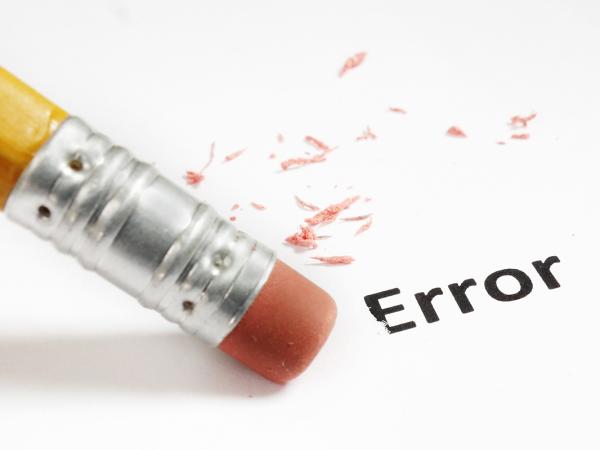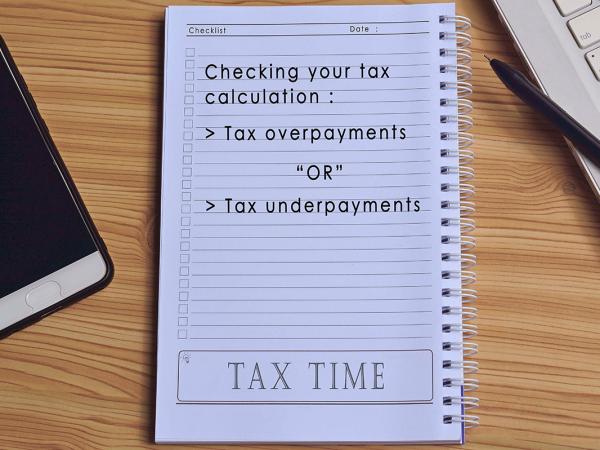PAYE: HMRC errors
If HM Revenue & Customs (HMRC) have delayed using information in their possession, and this results in you not paying enough tax under PAYE, HMRC will sometimes write off the arrears of tax under Extra-Statutory Concession A19 (ESC A19). This guidance is to help you consider whether you can challenge HMRC under this policy.

Content on this page:
ESC A19
Extra-Statutory Concession A19 (ESC A19) is HMRC’s practice covering situations where an error or administrative failure of theirs resulted in someone paying too little income tax or capital gains tax.
It was devised to ensure fairness for taxpayers where the strict law says that they owe tax but HMRC agree that it would be unfair to pursue payment.
When ESC A19 can apply
ESC A19 allows HMRC to write off (that is, not collect) tax in certain circumstances.
It is generally easy enough to work out whether the factual conditions of ESC A19 are satisfied. Arrears of tax must have arisen because HMRC have delayed in using information about you which they have had in their possession, and the arrears must usually be at least one year old. Sometimes, the concession can be used to write off arrears which are less than a year old where HMRC’s failure to make use of information has been persistent.
The other element of the test is less easy to satisfy: whether HMRC write off the tax depends on whether they think it was reasonable for you to have believed your tax affairs were in order. We explain more about this reasonable belief test below.
Bear in mind that ESC A19 usually only applies to underpayments for tax years ending more than 12 months ago – for example, you cannot normally use ESC A19 to ask for tax owing for 2023/24 to be written off if HMRC are advising you of the underpayment in, say, June 2024.
However, if HMRC have persistently got something wrong year after year, they may consider writing the tax off for all years up to and including 2023/24 unless they corrected the error before the end of the 2023/24 tax year. So, if you underpaid tax in earlier tax years, and an underpayment in 2023/24 occurred for the same reasons, ESC A19 might apply.
It might help to consider:
- Did HMRC have all the information they needed to get your tax right in the past? HMRC should have received details of taxable state benefits from the Department for Work and Pensions (DWP) and pay and pension details from employers/pension payers.
- You might have provided HMRC directly with information that they have failed to use – for example, by letter or telephone call.
- Where you have various sources of income, HMRC should send you a notice of coding each year (either electronically, if you have opted in to online communications, or by post). Did you receive notices of coding?
- Perhaps you contacted HMRC about your tax codes and they failed to act on the information you provided or told you everything was correct?
The ‘reasonable belief’ test
For ESC A19 to apply, it must have been reasonable for you to have believed that your tax affairs were in order. The question is not whether you did in fact believe that your affairs were in order, but whether it was reasonable for you to believe they were.
Importantly, this reasonable belief test should be applied by looking at you as an individual. HMRC’s internal guidance requires their staff to consider the following factors when applying the reasonableness test:
- The size of the arrears and what caused them
- What information HMRC have sent you over the years, such as coding notices, explanatory leaflets, etc.
- Whether HMRC have given you wrong or misleading advice
- Whether HMRC’s actions have muddled the case or made it hard to follow – for example, issuing multiple or incorrect coding notices
- Whether you have been professionally represented, in which case it may be harder to argue that you reasonably thought your affairs were in order
- Reasonable belief may change over time, that is, it may be reasonable for you to think your affairs are in order in one year, but if circumstances change the question may have to be considered again
- Your likely level of understanding of tax, taking into account factors such as your background, age, state of health, etc.
HMRC’s Manual instructions conclude: ‘if the issue is so finely balanced that it is hard to form a judgement, always give the taxpayer the benefit of the doubt’
What factors should be considered? Drawing on the criteria set out in the HMRC official manual, some examples might be:
- If you are a pensioner and have been employed all your working life, with PAYE taking care of your tax, it is perhaps reasonable that you should not have understood all that might go wrong with your taxes on retirement, or failed to identify errors in your tax across multiple sources of income
- You might have received numerous tax coding notices, which you found incomprehensible, or no coding notices at all
- Your age, state of health, other problems in your life – such as a bereavement, or ill-health of a close family member – educational background, literacy and numeracy skills, and disability all might have had an impact on your ability to cope with tax matters
Claiming ESC A19
If you think your situation fits in with the concession, contact HMRC as soon as possible – their telephone number and address should be given on the tax calculation you have received.
If you think HMRC have made mistakes and you have evidence to support that, set out the details in your letter or when you telephone. Whenever you contact HMRC, keep a record.
If writing, mark your letter as claiming ESC A19.
We also suggest when you contact HMRC that you ask them to suspend any action to collect the tax they say you owe while they review your case.
HMRC will, in due course, come back to you with their decision. There are several possibilities:
- They might have investigated your case and considered that your employer or pension provider is at fault and they should seek to recover all or part of the tax from them. HMRC’s guidance says that they should consider this point as part of their ESC A19 review
- They might decline ESC A19 treatment
- They might decide to allow ESC A19 in part and write off part of the tax
- They might allow ESC A19 treatment in full and write off all of the tax (if they do agree to write off the tax, check your PAYE coding notices to ensure that HMRC have not still inadvertently included it for collection)
If they decline ESC A19 or only allow it in part, you have other options to get your case reviewed further. For example, you can submit a formal complaint asking to have your case reviewed again, giving details of why you feel you have received inadequate help and care from HMRC. Read our page Complaining to HMRC.
The only route to the courts in ESC A19 cases is to seek what is called a ‘Judicial Review’, but unfortunately this is beyond the means of most ordinary taxpayers, particularly as it carries with it the downside of HMRC potentially seeking to recover their costs from you should your case fail. If you do wish to consider this route, you would need to take advice and act quickly as there are strict time limits to request the review which apply from the date of HMRC’s decision. There is a useful basic guide to the judicial review procedure on the website of the Public Law Project.
Paying the tax
HMRC should agree to suspend collection of any arrears while they consider a claim for relief under ESC A19.
If you pay the amount HMRC ask for, HMRC may claim that there are no longer any arrears in respect of which ESC A19 can apply, and refuse to consider the concession.
HMRC’s guidance
HMRC’s guidance on ESC A19 for individuals is on GOV.UK.
HMRC’s internal staff guidance can be found in theirprocedural manuals, including the full text of the concession.



